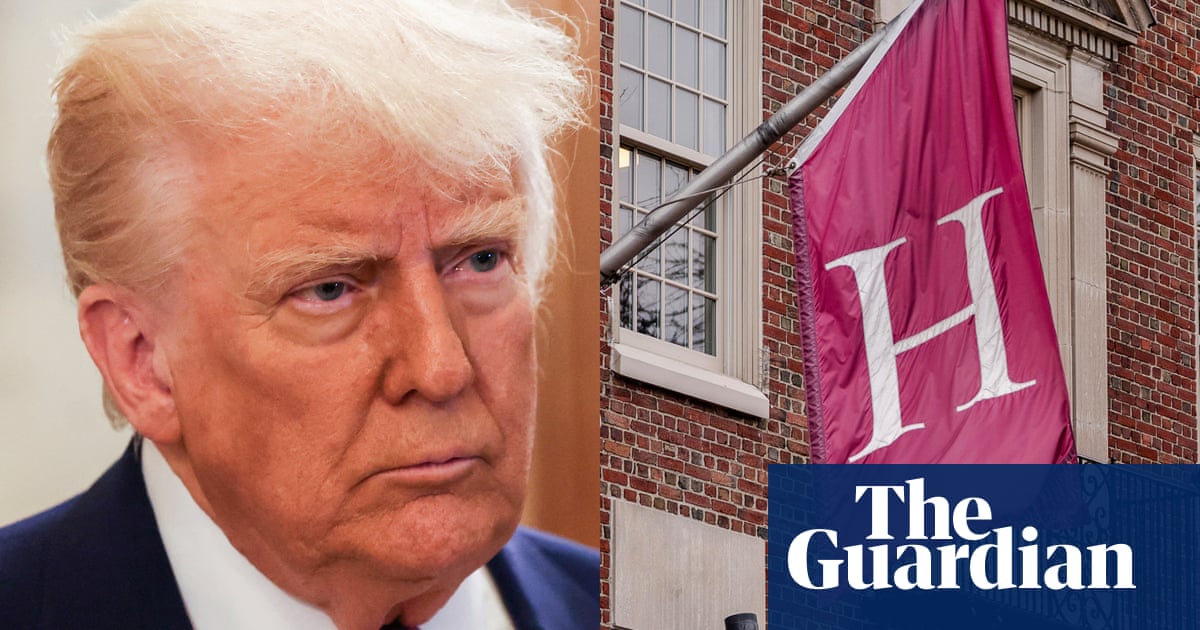Harvard University’s Eligibility to Enroll International Students Revoked
On Thursday, the Trump administration made a startling announcement that it would revoke Harvard University’s eligibility to enroll international students. This action is seen as the most severe escalation in a weeks-long conflict between the administration and the prestigious institution. The implications of this decision extend beyond just Harvard; over 6,000 currently enrolled international students may be forced to either transfer to other universities or risk losing their legal status in the United States.
Legal Challenges and Immediate Ramifications
In response to the announcement, Harvard quickly challenged the move in court. The stakes are high, as this decision adds another layer of uncertainty for international students already navigating turbulent waters amid the administration’s recent actions, which have included the abrupt termination of legal statuses for thousands of students. While some of these moves have been walked back, they have inevitably disrupted educational plans and upended lives.
Voices of Advocacy and Concern
Education advocates are decrying the administration’s latest attack as a gross overreach. Fanta Aw, CEO of Nafsa, the Association of International Educators, emphasized that international students are not mere bargaining chips; rather, they are valuable contributors to American communities and society at large. Aw warned that turning away global talent could be detrimental to U.S. interests.
The Financial Impact on Universities
International student enrollment was already projected to decline for the upcoming academic year due to prior policies and bureaucratic hurdles imposed by the Trump administration. The announcement is likely to exacerbate the situation for students hoping to study in the U.S. The financial implications of a potential drop in enrollment are significant; many American universities rely heavily on international students for tuition revenue. Approximately 65% of these students pay their tuition without assistance, a figure rising to 80% for undergraduates.
Economic Contribution of International Students
During the last academic year, over one million international students were enrolled in U.S. institutions, collectively contributing roughly $43.8 billion to the economy. At Harvard, international students constitute about 27% of the student body, aligning with figures from other Ivy League schools. Institutions like New York University, Northeastern University, and Columbia University boast even larger international populations, with over 20,000 students each. This influx not only bolsters university finances but also enriches academic research and community engagement.
The Broader Implications of Targeting International Students
The administration’s targeted actions against universities have been described as short-sighted, with potentially long-term consequences. Many countries are now vying for international talent, and if the U.S. continues down this path, it risks losing its competitive edge in attracting bright minds from around the world.
Harvard’s Unique Position and Its Response
Harvard, having become a primary target for the Trump administration, was the first institution to sue over funding cuts. It is currently the only university barred from enrolling international students, a blatant warning shot intended to align higher education with the administration’s agendas. Recently, Harvard advised incoming international students to accept offers from both its institution and foreign universities—an unprecedented move aimed at providing students with a safety net amidst this uncertainty.
The Anxiety Permeating International Educational Landscape
The ripple effects of recent policies are being felt widely. Reports indicate a 13% drop in graduate student enrollment this spring, alongside a 14% reduction in student visa issuances this year. Coupled with rising visa denial rates—from 15% a decade ago to 41% last year—these trends contribute to an increasingly inhospitable environment for international students. Some students are grappling with so much anxiety over immigration policies that simple actions, like driving a car, have become sources of stress.
University Responses to Interim Policies
While universities have sought to mitigate these effects—discouraging international students from traveling abroad and offering connections to immigration attorneys—these measures often feel insufficient. The extraordinary lengths to which the administration is willing to go create a climate of unpredictability and fear.
Shift in Higher Education Environment
Experts note that the current environment is markedly different from previous administrations, where universities actively reassured international students of their welcome status. The chilling effect of current policies may deter prospective students, leading to a long-term decline in foreign enrollment that could reshape the landscape of U.S. higher education.
In this unsettling atmosphere, the education community is left grappling with an urgent call to action, as policies continue to evolve in ways that could profoundly affect the future of international education in America.


